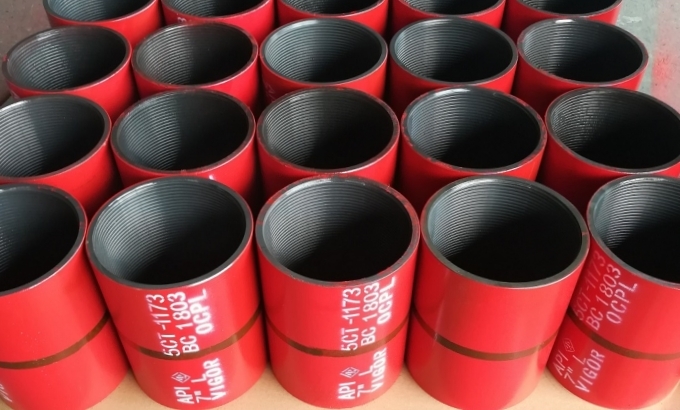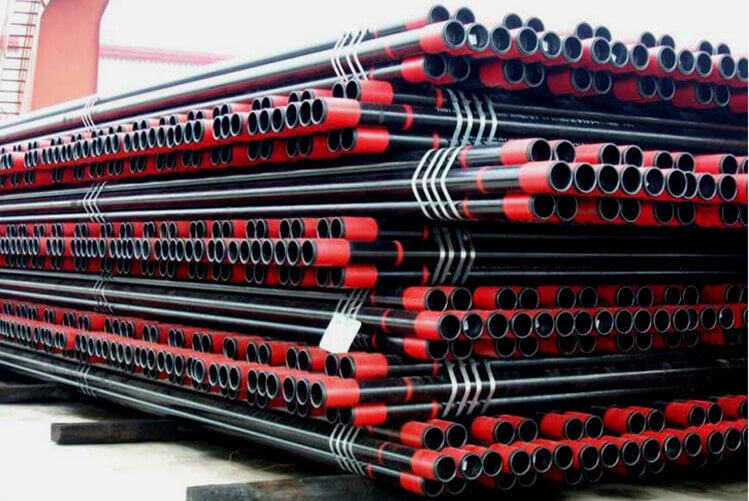The Role of API Tubing in Oil and Gas Operations
API tubing is fundamental in the oil and gas sector, comprising pipes crafted to meet rigorous American Petroleum Institute (API) standards. These tubes play a critical role in the secure and efficient conveyance of oil and gas from drilling locations to the surface, known for their resilience against extreme pressures and corrosive conditions, safeguarding the extraction process's integrity. Cangzhou Shenlong, boasting nearly three decades of proficiency in manufacturing and exporting steel pipes, has emerged as a trusted ally. Our extensive experience has been pivotal in assisting numerous clients with a wide array of projects, underscoring our dedication to industry-leading quality and excellence.

Properties and Characteristics of API Tubing
Material Composition and Standards (API 5CT)
API tubing adheres to the stringent API 5CT standard, defining its material composition and properties crucial for robust tubing in the oil and gas sector. Typically crafted from carbon or alloy steel, selected for their strength and durability, API tubing ensures resilience against the harsh conditions of oil extraction. This includes withstanding high pressures, extreme temperatures, and corrosive substances encountered in wells. Such standardized manufacturing guarantees reliability and operational safety across diverse environments.
Sizes and Specifications
API tubing offers a versatile range of sizes and specifications tailored to meet varying requirements within the oil and gas industry. Diameters typically span from 1.315 inches to 4.5 inches, accompanied by variable wall thicknesses to accommodate specific pressure demands. These precise specifications ensure compatibility with different wellbore sizes and depths, optimizing operational flexibility for drilling and production activities. The ability to select from a comprehensive array of sizes enhances efficiency and adaptability in complex extraction processes.
Corrosion Resistance and Durability
API tubing boasts exceptional corrosion resistance and durability, critical attributes for prolonged service life in challenging well environments. Engineered with advanced coating techniques and fortified with alloying elements, this tubing effectively shields against corrosive agents such as hydrocarbons and aqueous solutions. This resilience minimizes maintenance requirements, reduces the risk of operational failures, and upholds continuous, safe production operations in oil and gas fields.
Functions and Applications
Primary Functions in Oil Wells
API tubing fulfills its primary role as the conduit for transporting oil and gas from reservoirs to the surface within oil wells. Positioned inside the wellbore, it supports structural integrity under high pressures and temperatures while ensuring efficient fluid flow. This pivotal function safeguards against product contamination and mitigates the potential for well instability, thereby optimizing the safety and productivity of drilling operations.
Secondary Functions in Production Operations
Beyond its primary role, API tubing serves secondary functions critical to production operations. It facilitates the injection of fluids—such as chemicals or water—into wells to enhance oil recovery rates. Additionally, it enables precise well monitoring and testing, allowing for accurate measurement of pressure and temperature conditions. These auxiliary capabilities are integral to optimizing production efficiency, preserving well integrity, and sustaining long-term viability in oil extraction processes.
Examples of API Tubing Applications
API tubing finds broad application throughout various stages of oil and gas production. It is indispensable during drilling operations to safeguard well integrity and ensure uninterrupted hydrocarbon flow. In production phases, it serves as a conduit for fluid injection and monitoring, supporting enhanced oil recovery strategies like water flooding and gas injection. Such versatile applications underscore API tubing's indispensable role in maximizing extraction efficiency and operational reliability.
Manufacturing Process
Overview of Manufacturing Steps
The manufacturing of API tubing entails meticulous processes to uphold stringent quality and compliance standards. Beginning with the selection of premium raw materials, tubing production progresses through shaping—via extrusion or welding—to form tubular structures. Subsequent heat treatment enhances mechanical properties, while precision machining achieves exact dimensions. Each manufacturing step undergoes rigorous control to ensure that the final product meets the exacting demands of the oil and gas industry.
Quality Control and Testing Procedures
Quality control forms a cornerstone of API tubing production, encompassing comprehensive testing protocols to validate adherence to API 5CT standards. Non-destructive methods, including ultrasonic and magnetic particle inspections, detect internal and surface defects. Hydrostatic testing further verifies tubing integrity under pressure conditions. These stringent quality measures assure reliability, performance consistency, and operational safety across diverse operational environments.
Compliance with API Standards
Adherence to API standards is paramount for API tubing manufacturers like Cangzhou Shenlong, ensuring seamless acceptance and application in oil and gas operations. Stringent adherence to API 5CT guidelines encompasses material specifications, dimensional precision, and robust manufacturing practices. This compliance underscores product reliability, safety, and performance assurance, which are essential for sustaining operational excellence and meeting the industry's rigorous demands.
Installation and Maintenance
Installation Process in Oil Wells
Installing API tubing in oil wells requires precise procedures to ensure optimal placement and functionality. It begins with preparing the wellbore, followed by carefully running the tubing into the well using specialized equipment. Proper handling and alignment are critical to prevent damage and ensure a secure fit. Once in place, the tubing is connected to the wellhead, and rigorous pressure tests are conducted to verify installation integrity. This meticulous process guarantees efficient and safe operation within the well, supporting uninterrupted production.
Maintenance Practices to Ensure Longevity
Maintaining API tubing is essential for maximizing its lifespan and operational reliability. Regular cleaning and inspections are fundamental to prevent the accumulation of corrosive substances and detect early signs of wear or damage. Lubrication of connections and periodic pressure testing help preserve the tubing's structural integrity over time. A comprehensive maintenance schedule not only extends tubing longevity but also minimizes the risk of unexpected failures, ensuring continuous and safe production operations.
Importance of Regular Inspections
Regular inspections play a crucial role in maintaining the performance and safety of API tubing. By detecting potential issues such as corrosion, cracks, or wear early on, inspections mitigate risks that could compromise tubing functionality. Advanced techniques like ultrasonic testing and visual inspections are employed to identify and address problems promptly. Timely inspections and proactive maintenance ensure that necessary repairs or replacements are conducted swiftly, thereby safeguarding the efficiency and safety of oil and gas extraction processes.
Challenges and Considerations
Environmental Factors
API tubing faces challenges from environmental factors such as corrosion and extreme temperatures. Exposure to these conditions can degrade tubing materials, potentially leading to failures. To mitigate these risks, high-quality materials and protective coatings are essential in tubing design. Understanding and accounting for specific environmental conditions at each well site are crucial steps in selecting appropriate tubing solutions that ensure long-term durability and reliability.
Operational Challenges
Operational challenges, including high pressures and fluid compatibility, require careful consideration when using API tubing. The tubing must withstand the intense pressures encountered during extraction and remain compatible with various fluids used in the process. Selecting the right specifications and materials tailored to each operational scenario is essential for maintaining tubing integrity and minimizing operational disruptions. Addressing these challenges ensures reliable performance throughout the tubing's lifecycle.
Safety and Regulatory Compliance
Safety and regulatory compliance are paramount in the oil and gas industry, particularly concerning API tubing. Adherence to stringent safety standards and regulatory requirements is crucial to prevent accidents and ensure operational safety. Manufacturers and operators must ensure that tubing meets all relevant standards through regular testing, inspections, and compliance checks. Upholding these standards not only enhances operational reliability but also fosters trust and credibility within the industry.
Future Trends and Innovations
Advances in Materials and Manufacturing Techniques
Continuous advancements in materials and manufacturing techniques are driving the evolution of API tubing. Innovations such as high-strength alloys and advanced fabrication processes enhance tubing durability and performance in demanding environments. These advancements extend tubing lifespan and improve operational efficiency, meeting evolving industry demands for reliability and sustainability. Ongoing research and development promise further enhancements in tubing design and manufacturing.
Integration with Digital Technologies
The integration of digital technologies, including IoT and predictive maintenance, is revolutionizing API tubing management. IoT sensors enable real-time monitoring of tubing conditions, providing valuable data for predictive maintenance strategies. This proactive approach minimizes downtime by enabling timely maintenance and repairs, thereby enhancing operational reliability and cost-effectiveness. Digital technologies optimize tubing performance and support safer, more efficient oil and gas operations.
Potential Impact on Oil and Gas Industry Efficiency
Innovations in materials, manufacturing, and digital technologies are poised to significantly enhance the efficiency of the oil and gas industry. Improved tubing durability and real-time monitoring capabilities reduce operational disruptions and maintenance costs. By adopting advanced solutions, the industry can achieve higher productivity, safer operations, and better resource management. These advancements pave the way for more sustainable and efficient extraction processes, driving overall industry competitiveness and resilience.
Closing Words
API tubing plays a crucial role in oil and gas operations by securely and efficiently transporting hydrocarbons from the reservoir to the surface. Its ability to withstand high pressures, extreme temperatures, and corrosive conditions underscores its importance in ensuring well integrity and operational safety. With advanced materials, meticulous manufacturing, and rigorous quality control, API tubing ensures reliability and durability. As the industry advances, innovations in materials and digital technologies will enhance API tubing's performance, promoting efficiency and sustainability in extraction processes. Consequently, API tubing remains pivotal in the oil and gas sector, supporting ongoing advancements and resilience in demanding operational environments.






